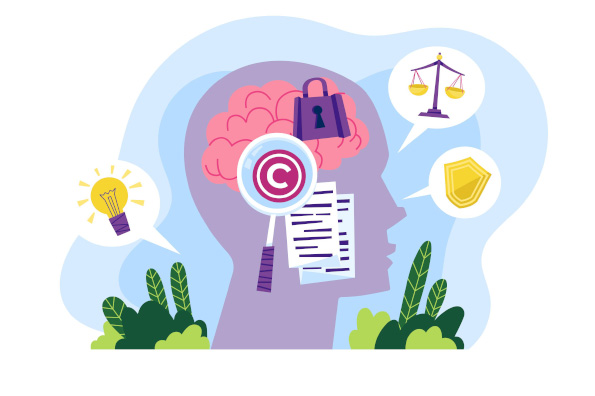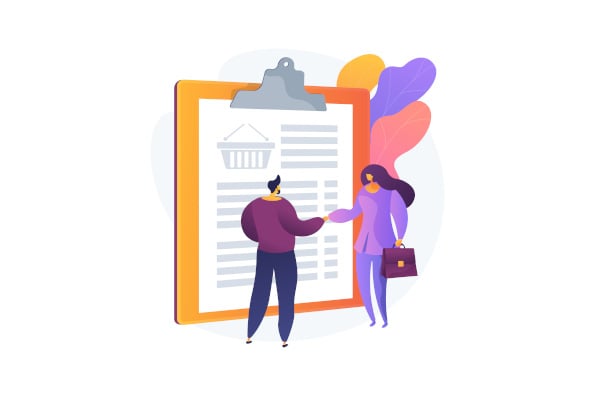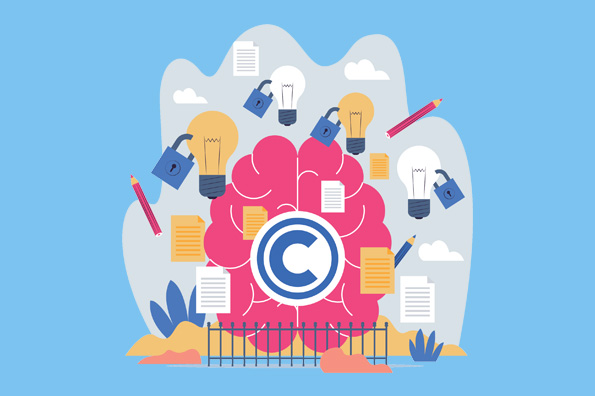How to Protect Your Trademark: A Comprehensive Guide
Now that your trademark is registered, it's crucial to take steps to protect it. Trademark protection is an ongoing process that helps ensure your...
5 min read
LegalGPS : Oct. 14, 2024
Copyright infringement can be a serious problem, and it's essential to understand how to use others' creative works without crossing the line into illegal territory. In this guide, we’ll discuss three ways you can use others' copyrighted material without committing copyright infringement:
Licenses
First Sale Doctrine
Fair Use


Legal GPS Pro
Protect your business with our complete legal subscription service, designed by top startup attorneys.
We'll also cover some safe harbor provisions that may shield you from liability when copyright infringement occurs on your platform. Let’s dive into these important topics to help you stay on the right side of copyright law.
Yes, you can use other people's copyrighted material in certain circumstances. Let’s explore the three ways you can legally use copyrighted material without committing copyright infringement.
The most straightforward way to use someone else’s copyrighted work is to get permission from the copyright owner. This is typically done through a license, which is a formal agreement between you and the copyright owner that gives you permission to use the work under specific conditions.
Voluntary Licenses: You can contact the copyright holder directly and ask for permission to use their work. Usually, this means paying a royalty or licensing fee. For example, if you want to use a famous song in your YouTube video, you would need to contact the rights holder (usually the record label) and negotiate a licensing fee.
Compulsory Licenses: In some cases, you can obtain a license without the owner's consent. These are called compulsory licenses, which are available for specific activities, such as:
Copying and distributing phonorecords of non-dramatic, published music.
Non-commercial broadcasting of certain works, like music or graphic content, by non-profits.
Secondary transmissions of television programs by satellite carriers.
Digitally transmitting sound recordings through certain non-subscription services.
To use copyrighted material under a compulsory license, you need to comply with administrative requirements set by the government, which typically involve providing notice to the copyright owner and paying royalties.
The First Sale Doctrine allows you to resell, rent, or lend a legally obtained copy of a copyrighted work without the copyright owner’s permission. The key here is that the initial sale of the work has already occurred, and the copyright owner has received compensation for that sale.
For example, a bookstore can legally resell books it has purchased from the publisher. However, the bookstore cannot make and sell copies of the book—that would still be a violation of copyright.
Similarly, if you buy a DVD, you can resell that physical copy, but you can’t make additional copies and sell those.
This doctrine applies to physical copies of a work, not digital copies. Digital copies can often have additional restrictions due to licensing agreements.
Convert Ideas Into Valuable Assets
Fair Use is a legal doctrine that allows the use of copyrighted material without permission from the copyright owner in certain situations. It’s often used for purposes like education, commentary, criticism, news reporting, and parody. However, determining whether a particular use is fair can be complex.
There are four factors courts consider to determine fair use:
Purpose and Character of the Use: If the use is transformative (e.g., adding new meaning or creating something new), and for purposes such as commentary or education, it is more likely to be considered fair use.
For example, a teacher showing excerpts of a film in a classroom for educational purposes might qualify as fair use.
Nature of the Copyrighted Work: The use of factual works is more likely to be considered fair use than the use of highly creative works, like fiction or art.
Amount and Substantiality of the Portion Used: Using a small, less significant part of a work may be considered fair use, while using the "heart" of the work is less likely to be permitted.
For instance, quoting a few sentences from a book in a review is more likely to be fair use than reproducing entire chapters.
Effect on the Market: If your use of the work could harm the potential market value of the original, it is less likely to be considered fair use. For example, if you use a significant portion of a movie online, it might reduce people’s incentive to buy or rent the movie.
Since fair use is a complex area of copyright law, it's often advisable to consult a legal professional if you are unsure whether your use qualifies.


Legal GPS Pro
Protect your business with our complete legal subscription service, designed by top startup attorneys.
If you have a website or provide online services, you need to be aware of potential liability for copyright infringement committed by your users. For example, if users upload copyrighted material to your platform without permission, you may be held liable for that infringement. However, there are ways to protect yourself.
The Digital Millennium Copyright Act (DMCA) provides safe harbors, or protections, for online service providers. If you qualify for these safe harbors, you may not be held liable for infringing activities conducted by your users.
To qualify for the safe harbor provisions, you must meet specific requirements:
Transmit Material as a Conduit: If your service merely transmits copyrighted material from one point to another (e.g., an internet provider), you are generally shielded from liability as long as the transmission is automatic, and you don’t interfere with or modify the content.
Caching: If you temporarily store information to improve the efficiency of your service, you may qualify for a safe harbor if you meet specific criteria. For example, a search engine caching web pages to improve load speed must comply with limitations on storage time and content modification.
Storing User-Generated Content: Platforms like social media sites or forums that allow users to upload content can qualify for safe harbor as long as they take steps to promptly remove infringing material when notified (e.g., receiving a DMCA takedown notice) and do not benefit financially from the infringing content.
Linking to Infringing Content: If your website includes links to other websites containing copyrighted material, you may be protected as long as you had no knowledge of the infringing content and did not receive any financial benefit from it.
To qualify for any of the safe harbors, you must also meet some threshold requirements:
Qualify as an Online Service Provider: Your platform must fit within the definition of a service provider under the DMCA.
Cooperate with Copyright Owners: You need to have a policy that provides for the removal of infringing material and respond to copyright holders’ notices in good faith.
Implement a Repeat Infringer Policy: You must have a policy to terminate accounts of users who repeatedly violate copyright laws, and you need to inform your users of this policy.
Failure to meet these requirements means you could be held liable for copyright infringement by your users. It’s essential to implement proper policies and act promptly when you receive a DMCA notice to stay within the protection of the safe harbors.
The biggest question now is, "Do I need a business lawyer?” For most businesses and in most cases, you don't need a lawyer to start your business. Instead, many business owners rely on Legal GPS Pro to help with legal issues.
Legal GPS Pro is your All-In-One Legal Toolkit for Businesses. Developed by top startup attorneys, Pro gives you access to 100+ expertly crafted templates including operating agreements, NDAs, and service agreements, and an interactive platform. All designed to protect your company and set it up for lasting success.

Legal GPS Pro
Protect your business with our complete legal subscription service, designed by top startup attorneys.

100+ legal templates, guides, and expert advice to protect your business.
Trusted by 1000+ businesses

Now that your trademark is registered, it's crucial to take steps to protect it. Trademark protection is an ongoing process that helps ensure your...

Registering your company name as a trademark can be a significant step in protecting your brand. But is it always necessary? Let’s break down what...

Navigating the line between copyright infringement and fair use can be tricky. Fair use lets you use someone else's copyrighted material without...